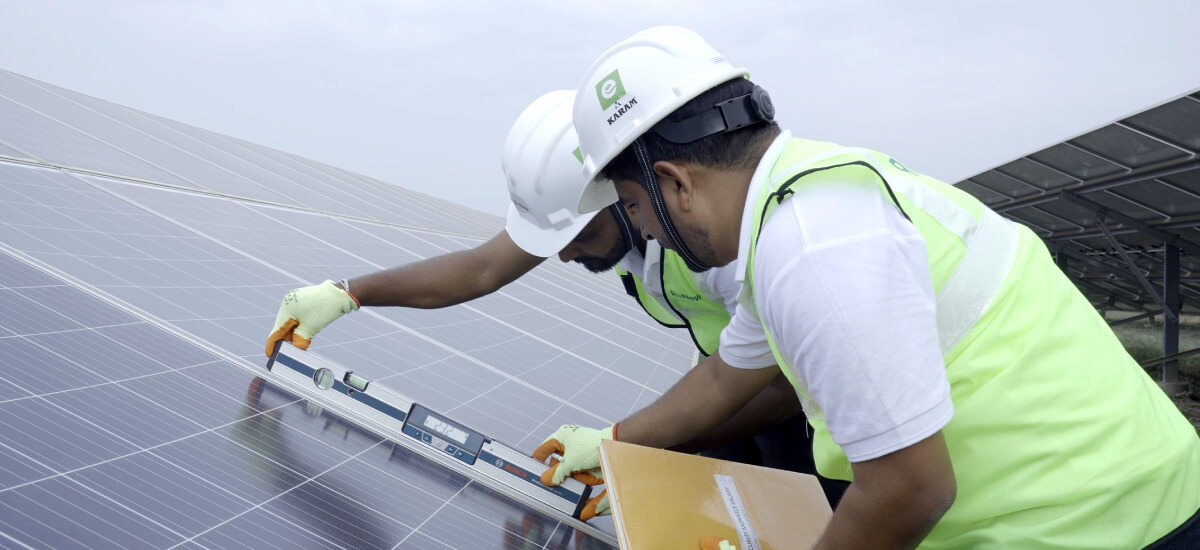Corporate Communication
28 October 2024
ReNew
Balancing profitability with sustainability can be challenging, but embracing circularity offers a solution. The circular economy focuses on reducing, reusing, recycling, repairing, and refurbishing products to extend their life, contrasting with the traditional linear economy that extracts, processes, and disposes materials.
Between 2016 and 2021, the world consumed 582 billion tonnes of materials, nearly as much as in the entire 20th century. Increased material extraction has reduced global circularity from 9.1% in 2018 to 7.2% in 2023. The 2023 Circularity Gap Report shows that adopting a circular economy can cut material use by 30% while meeting societal needs within the planet's limits. By 2030, the circular economy is expected to add $4.5 trillion to global GDP, with a potential of $45 billion for India. Businesses can benefit from green investments by being early adopters of circular practices.
Minimizing waste and reusing materials can lower production costs and support profitability. Industrial waste constitutes 50% of global waste and is 18 times greater than municipal solid waste. With increasing waste and resource scarcity, optimizing resource usage and transforming waste into valuable resources is crucial for sustainable growth. Governments worldwide are implementing stricter regulations to discourage waste generation and promote sustainable practices.
According to a 2014 McKinsey report, companies with high ESG ratings consistently outperform in both the medium and long term
There are clearly significant benefits for businesses in making circularity a principle:
- Builds customer trust and enhances brand image.
- Reduces environmental footprint, enhancing sustainability profile.
- Provides a competitive advantage through process innovation.
- Helps avoid fines and supply chain disruptions, and benefits from government incentives.
- Generates thousands of jobs.
To integrate circularity, it's crucial to influence product design early. Engaging customers in product repair, maintenance, and proper disposal for material recovery is equally important. Collaboration with partners and stakeholders advances circularity initiatives, and organizational culture plays a critical role in promoting these efforts.
ReNew promotes circularity in its business operations
ReNew is committed to promoting circularity through its waste management practices, enhancing environmental performance in its renewable energy projects. It incorporates durability, recyclability, reusability, and reparability in its products. ReNew’s corporate Waste Management Standards and site-specific procedures ensure safe and responsible disposal of waste, differentiating between hazardous and non-hazardous wastes. It discourages single-use plastics and aims for Zero Solid Waste to Landfill by 2030 under its ReNew’s Sustainability Targets for Responsible Transformation (ReSTART) targets.
ReNew has repurposed plastic from its Head Office in Gurugram and the Singoli Bhatwari Hydroelectric Project in Uttarakhand, keeping plastic waste out of landfills with the help of reliable recycling partners. Its circular supply chain initiatives have recovered and recycled materials worth around INR 173 million till FY 2023-24.
Integration of circular economy principles into ReNew’s operations
ReNew procures sustainable materials to extend the lifespan of its equipment and reduce its logistics footprint through reverse logistics. It maximizes asset lifespan and performance with a comprehensive maintenance strategy using predictive analysis. ReNew's digital arm, ReD, leverages innovative technologies for efficient operations, optimized asset usage, reduced downtime, and prolonged asset lifespan.
The focus areas of ReNew's research and development efforts are low-carbon footprint and enhanced recyclability. In partnership with IIT Mumbai, ReNew is exploring recycling methods for solar modules to extract valuable materials. The company has a sustainable supply chain program, collaborating with suppliers to drive ESG elements, with circularity being a major discussion driver. As part of its decarbonization efforts, ReNew emphasizes resource efficiency, waste circularity, and material reuse as key components of its environmental strategy.









 Urji Calculator
Urji Calculator